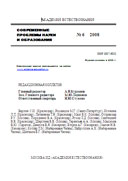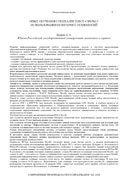PDF-версия статьи


|
Considerable attention should be paid to ensuring that social workers participate in health systems, including health care. Social workers also have ICT skills within existing strategies. This article also identifies potential problems and problems with recommendations for their use in practice, education and research.
In this article, we argue that ICTs are critical to the development of social work. In particular, they provide effective and effective ways to organize people and ideas, as well as increase the effectiveness and cooperation of our work. This document states that many aspects can be met through careful and thoughtful use of ICT.
Information and communication technologies (ICT) are widely defined as used for the transmission, processing and storage of data. This may include email, text messaging, video chat (for example, Skype) and online social networks (for example, Facebook). It also includes all the various computing devices (for example, laptops and smartphones) that have a wide range of communication and information functions. ICTs are developing in developing countries. ICT needs help to achieve the eight goals of reducing poverty and other social and economic problems. The World Health Organization also sees ICT as a contribution to developing countries in three ways:
1) as a way to learn achievements in practice;
2) as a delivery mechanism to poor and remote areas;
3) increase transparency and efficiency, which is crucial for the provision of public health services.
With the growth of the Internet, a wide range of ICTs have transformed social relationships, education, and information dissemination. It is argued that online relationships can have qualities that are intimacy, wealth and liberation, which compete or exceed autonomous relationships, since online relationships are usually based on mutual interest, not physical proximity. Scientists say that collaborative technologies, that is, the interaction between people supported by ICT, have been expanded to create new jobs and distribute valuable goods and services for all. Countless accounts and data sources show that ICT has reduced borders and expanded access to information and education, and as a result, on education, science and reduction, has focused on helping a member of States develop robust ICT policies and higher education.
Despite this interest in technology, the attention that the field of social work pays to ICT in research, education and practice does not match ICT as disadvantaged and disadvantaged, and is necessary for all forms of civic participation. CSO for social work, but there are no explicit standards for integration or student learning. Turning to other social workers, social work students, and social work educators, one can easily show that many of them are NASW technology standards. A review of social work curricula will also show that ICTs, apart from e-mail, are usually not present in the educational environment.
In this article, we argue that ICTs are crucial for the development of the social work industry. In particular, they provide effective and efficient ways of organizing people and ideas, as well as improving the efficiency and cooperation of our work. This paper argues that many aspects can be accomplished through the careful and thoughtful use of ICT. Therefore, ICT competence and ICT literacy should be the result of learning outcomes in social work and continuing education. This is knowledge of ICT (for example, competence), as well as knowledge of basic concepts and language related to ICT. Within this framework, this paper identifies specific aspects that show how ICTs play a crucial role in achieving the desired values and principles. Recommendations are being discussed on how ICTs can be strategically included in a class, along with potential pitfalls.
ICT applications have grown significan
ОПУБЛИКОВАНО
G.T.Jussupbekova., S.S.Mombekova., G.S.Shaymerdenova., N.Zh.Rakhymbek., B.O.Tastanbekova WIDE RANGE OF ICT IN SOCIETY, EDUCATION AND INFORMATION DISSEMINATION. // Современные проблемы науки и образования - 2019.-№6. (приложение "Технические науки"). - C. 3